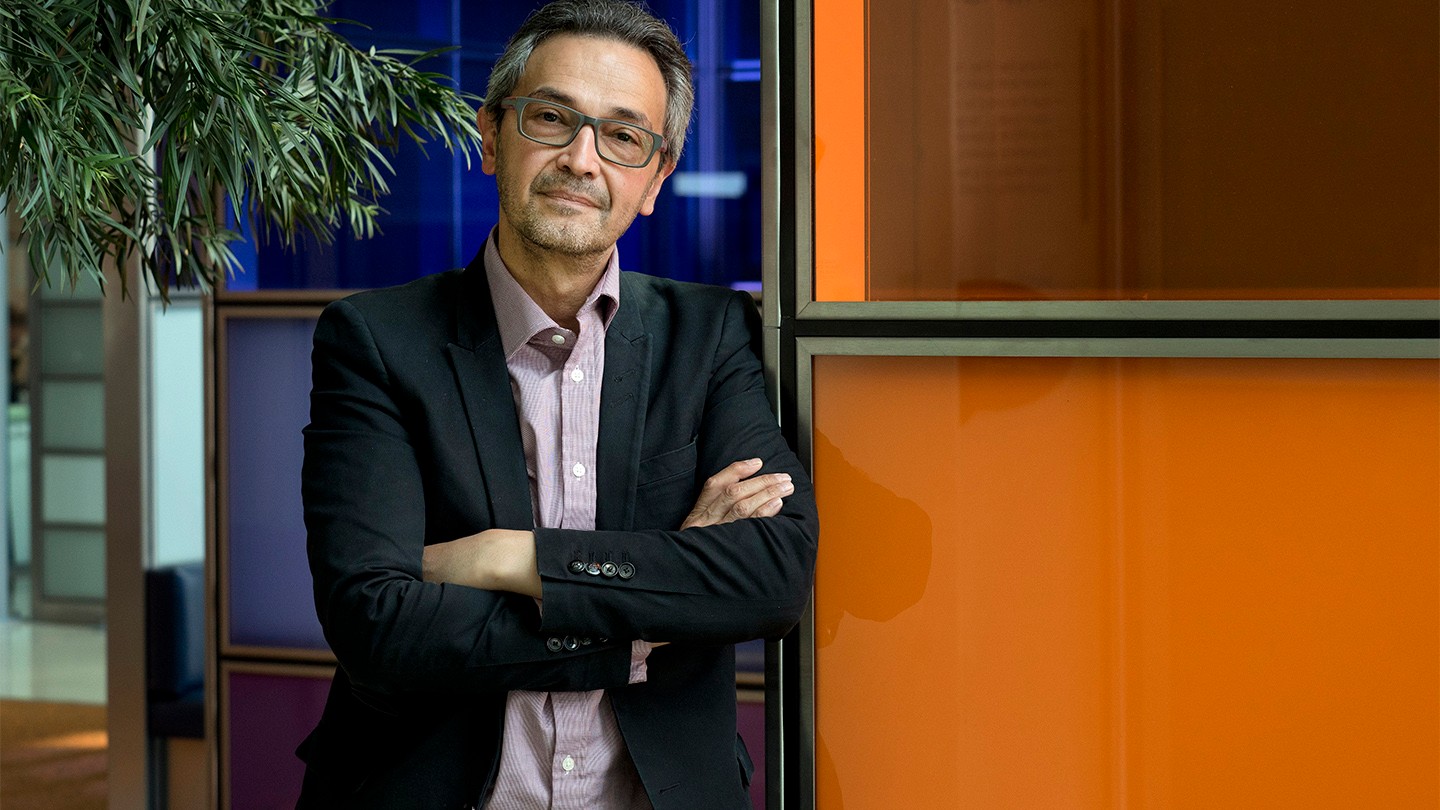
Impact
Insights: “Being a carer is a full time job”
Michael Payne is Managing Director of Barclays’ Information Business, a role requiring travel and early morning conference calls. He also has two other “jobs” as a carer for family members. He explains how Barclays’ “progressive” commitment to dynamic working has allowed him to find the right balance – and why it should become the “new normal”.
Our team deals with data. That means making sure Barclays is using it in the right way. It involves many conversations about best practice and meetings with clients and with colleagues all over the world. Some days, I start with a 7am video conference with our teams in Noida or Pune, India, and end with afternoon meetings with UK colleagues in London, Coventry or Glasgow. The job is pretty full on.
I also have a second job. I have a young family, but I also care for two members of that family, both at different stages in their lives. They have different needs and I’m the provider of care and manager of lives for both.
Because of that, I have a very different schedule to many of my colleagues. I leave work early at 4.30pm and when I get home at 5.30pm, my second life begins. I take care of my kids and get them into bed. Then at 9.30pm, I start my third job, caring for the other side of my family. Whether that’s organising shopping, hospital visits or just caring for them.
It’s exhausting on one level – you don’t get proper down time. But it’s also enormously rewarding for those little moments where you get quality time. Those are incredibly valuable to me.
I have a tremendous amount of respect for people who care full time, because it is full time. You’re not just a physical support to the people you care for, but emotional support too. So actually, my job at Barclays gives me balance. It allows me to think of those roles as second and third jobs. If you try and mix it all up, you can become distressed.

Michael Payne, MD of Barclays Information Business
My downtime is with my kids – they are so optimistic. They also require lots of attention, but it’s different. No matter how tired you are, you become energised around them.
What is the trade-off? Well if I’m honest I don’t get as much sleep as I would like, but this isn’t about what I’ve missed, it’s about what I’ve gained. The people I look after, we have a depth to our relationships that I’m not sure you get normally.
“If you’re working two or three jobs like I am, don’t struggle on”
My ‘second and third careers’ didn’t take off until I started at Barclays and I have to confess I wasn’t sure whether Barclays would be able to support me. That would have been a deal breaker for me. I shouldn’t have worried – I have had a series of incredibly supportive bosses and been blessed with some amazing teams
What made the difference? I talked about my situation with my boss and rather than saying, “No you can’t”, Barclays said, “You’re measured on your output and we judge on your results, not the hours you do”.
I make my life work by coming into work at 6am and leaving just after 4.30pm. My colleagues are incredibly accommodating. They know I’m not around at certain times and when I am back online. Everyone has allowed me to work according to my schedule on those hours. It’s not a normal working pattern, but people have been so accommodating, from the top down.

My one plea to everyone is, if you’re in two or three jobs like I am, flag it. Don’t struggle on. The organisation wants to know about it. They want to make it work. You are measured on outcomes, not hours. If you can make it work with your colleagues and team, it’s entirely doable.
I make sure my entire team know about my regime. We don’t even talk about it now. We have people in our team working compressed hours, but some who want to work part-time. If someone has the right skill set for a role, we should be flexible. This approach, in our team at least, is the new normal.
The whole 9 to 5 thing is a little old fashioned. In the future people will have multiple ‘jobs’. Not jobs as we see it now – you might want to do things in your local community, you may have caring responsibilities. The old world where you could do one and not the other is becoming no more.
Flexibility from the employee and from the organisation is critical. Barclays is very progressive in this space.
My message to anyone in the same situation is: you are not unique, you are part of a growing trend. Treat your caring responsibilities as a job. It deserves the same respect and recognition as doing a full time job elsewhere. Also, talk about it. It’s really difficult, so the more people know about it, the more they can accommodate you.